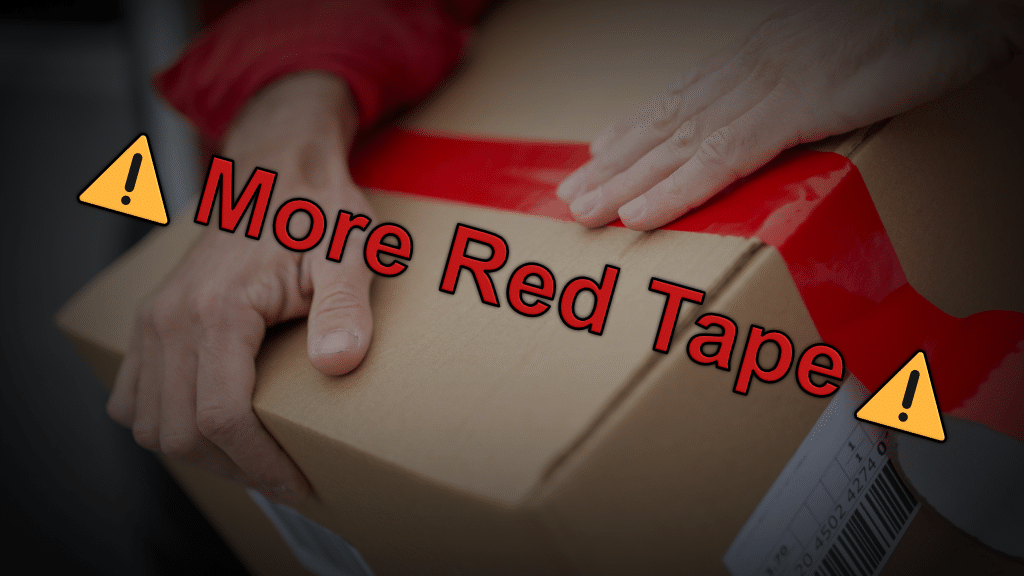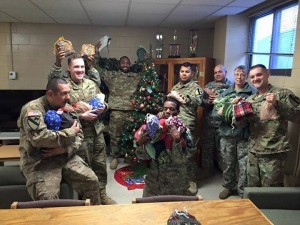TL;DR
USPS has begun strictly enforcing long-standing international customs rules on military and diplomatic mail (APO/FPO/DPO). These rules were always on the books but buried in postal regulations, seldom enforced, and rarely communicated. Even postal officials could not clearly explain why shipments were being returned. Only after reviewing years of Postal Bulletins did the scope of the changes become clear. Nonprofits, families, and service members are now facing unexpected returns, delays, and restrictions — with no reliable way to confirm final delivery.
Take Action:
- 📋 Sign our petition to add your name.
- ✉️ Send this letter to your Representative — copy, personalize, and send.
- 🔗 Find your elected officials.
Military Mail: A System Shift in Practice
For decades, families and nonprofits relied on a straightforward process: fill out a customs form, ship through USPS, and trust the military to deliver. Care packages flowed reliably, even if the fine print of international law technically applied.
Today, that fine print is being enforced. USPS now applies international mail standards — rules rooted in the Universal Postal Union (UPU) and customs law — to every APO/FPO/DPO shipment.

The rules themselves are not new. What is new is consistent enforcement. For years, they remained buried in the International Mail Manual and scattered Postal Bulletins. Families and nonprofits had little reason to know about them, and even postal officials were unable to explain why shipments were suddenly being rejected.
It was only through careful review of past Postal Bulletins that the picture became clear: what had once been ignored was now being applied without exception.
What Enforcement Looks Like
- Item-by-item detail required: Every package must list each item with its weight, HS code, and country of origin.
- Expanded prohibitions: Coffee, jerky, pork products, and items containing alcohol (such as hand sanitizer, mouthwash, or liquid medicines) are now barred in certain regions.
- Higher risk of loss: If paperwork is incomplete or an item is restricted, packages may be delayed, returned, or destroyed.
The most visible change — the requirement for HS codes — appears to have been the trigger for broader enforcement.
The Accountability Gap Remains 🤷
Despite stricter rules, visibility hasn’t improved. USPS scans packages as “delivered” once they arrive at an overseas military post office. Beyond that point, responsibility shifts to the Department of Defense, which provides no public confirmation that the intended soldier actually receives the box.
That leaves nonprofits and families guessing whether their packages truly made it into the right hands.
The Impact on Families and Nonprofits
Nonprofits: Returned shipments mean wasted postage and supplies — and troops going without.
Families: Complex paperwork, little guidance, and no certainty of delivery.
Service members: Fewer care packages, less variety, longer wait times.
A Policy Problem, Not a Mailing Error
This isn’t about isolated mistakes. It reflects a systemic gap between international law, USPS enforcement, and military mail practices.
Without Congressional action to clarify how military mail should be classified, communicated, and tracked, nonprofits and families will continue to face uncertainty — while service members bear the consequences.
What’s Next
Operation Shoebox will continue sending care packages, adapting as best we can. But the public deserves to know: these are not brand-new rules. They were hidden in regulations, left unenforced for years, and only revealed through research after even postal officials could not provide answers.
Troops and their families deserve transparency, not surprises.
What you can do:
📋 Sign our petition to add your name.
✉️ Send this letter to your Representative — copy, personalize, and send.






